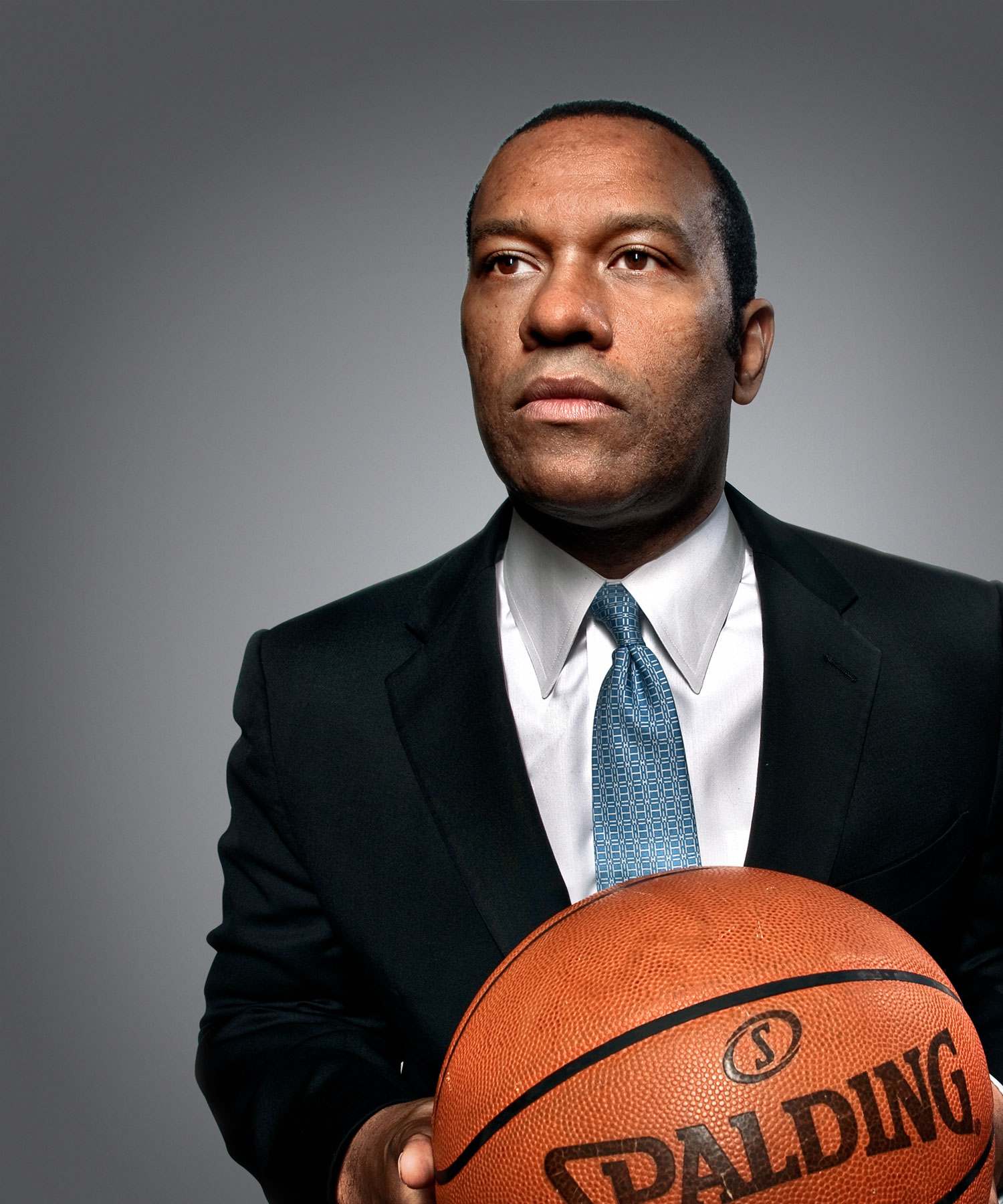Terdema Ussery’s phone rang as his flight to New York sat on the runway, preparing for takeoff. On the other end was then-mayor of Dallas Tom Leppert. He had an urgent request.
“I’m not going to be able to get you on the DFW Airport board,” Leppert told Ussery, whose innocuous day job—Mavericks’ team president—belies his stature as one of the most politically connected businessmen in North Texas. “But that’s okay. I have a more important job for you. I need you to take over the board of the Dallas Housing Authority.”
The offer was unexpected but not a surprise. It was 2008, and DHA was engaged in a public meltdown, most notably following a federal audit that found $56.4 million in questionable expenses. And Ussery, himself a success story who grew up in a violent public-housing complex, had the boardroom and street-level credibility to enact reform.
Before Ussery could respond, the flight attendant asked that all phones be turned off. “I’ll have to give you an answer in New York,” he told Leppert.
Ussery was thankful for the three hours in the air to contemplate the offer. His life was plenty busy. His day job was spent trying to maintain the Mavericks’ success on the court and at the ticket office. He had kids readying for college and a wife who already saw too little of him.
When his plane touched down, he phoned the mayor. “I’ve got to be able to hire my own people,” he said, “and run it the right way.” Leppert assured him he’d have the autonomy he needed.
“How could I say no?” Ussery says today, sitting in his tiny office in the Mavericks’ modest Deep Ellum digs. “He was asking me to take on a great responsibility: how do you take taxpayers’ money and use it to help people who want to get out of public housing? How do you show them the way? I’d done it myself, and now I needed to show them the way.”
“Board meetings used to be screaming matches between the board and staff,” Ussery says. “It was like your typical DISD board meeting.”
“He had instant credibility, because he lived it,” Broussard says. (Full disclosure: I worked as a freelancer for Broussard and DHA in 2010 on an internal communications project.) “He grew up in Watts, in southern LA, which was synonymous with the crime and violence that fed into fears of affordable housing. So he lived there and saw what it did to his friends. But he went to Princeton and Berkeley and got his law degree. He worked for Nike and Phil Knight. His career path was out there. His whole thing with [DHA administration] was that he told us, ‘We don’t have the luxury of not investing in these kids, because you never know what these kids can and will do. Teacher, fireman, doctor—we have to give them the ability to reach their potential.’ ”
First, Ussery had to clean house. He found other well-connected business leaders like John Gates of the Staubach Company to serve on the board with him (per the mayor’s appointment). He formed an advisory board so that DHA could have access to more business skills (like the former head of a Big Six accounting firm to straighten out DHA’s books). These changes were designed to get the agency in line with its angry federal overseers, the Office of Inspector General and the U.S. Department of Housing and Urban Development. “Our first short-term goal was to stay out of the newspapers,” Ussery says.
Next, he had to repair relations with staff. “Board meetings used to be screaming matches between the board and staff,” he says. “It was like your typical DISD board meeting.” At the same time, he needed a leader who would be on board with the painful cuts he’d have to make to make the agency as lean as possible. He found that in MaryAnn Russ, current CEO and president, whose no-B.S. style was a perfect complement to Ussery’s smooth charisma. (It was a style I saw firsthand. I don’t think I’ve ever seen a Dallas executive who cares more about her job and gives less of a crap about what the Dallas elite and Dallas media think of her.)
Ussery and Russ did, however, care what citizens thought of DHA. After the DHA team and others (Leppert and Mike Rawlings among them) joined with Harvard professors in a days-long whiteboard strategy session to set goals, DHA realized it had work to do in changing people’s preconceived notions about public housing in Dallas. Ussery could tell them—just as he once told HUD Secretary Jack Kemp, when he toured Ussery’s former Watts projects at the young lawyer’s request—that DHA housing was not and would not in the future be home to debilitating violence. It was home to the working poor, many of them single-mother households, holding down multiple jobs, in need of public transportation and education options for their kids. It was not Watts, where a young Ussery, before leaving the house for school, would call friends with a bird’s-eye view of his route to see if the gangs were waiting to beat kids for lunch money.
Changing people’s attitudes could only happen once DHA was able to stop looking backward (correcting the books) and start looking forward (employing a strategy to provide not just adequate housing but needed social services to residents). Ussery asked Wright Lassiter Jr., chancellor of the Dallas County Community College District, to serve on the board and to help find a way to get more kids into the district’s system. To further that goal, DHA founded a nonprofit that provides college scholarships to deserving high school seniors. It funded college tours for junior high students so they had a clear picture of where they could end up if they worked hard. DHA invested in early childhood programs, too, putting $12 million into four on-site Head Start centers, which now serve 600 pre-K children.
In the past six years under Ussery, DHA, working with an ever-shrinking budget (today it’s about $138 million), has invested $94 million in construction and produced more than 1,200 affordable housing units—often by replacing obsolete housing with market-quality apartments. And it has reinvented its Housing Choice Voucher system (HUD’s major program for assisting very-low-income families, the elderly, and the disabled), earning distinction from HUD for four consecutive years.
Most important, to my mind: Ussery ran a board that acted like a board. It’s the opposite of the meddling, bickering act we see with the DISD board. A board should really only flex its muscle when it needs to give political protection to its administration.
Ussery tells a story about “one of Dallas’ richest men,” who came to board members to let them know he had a development plan for them to approve. Ussery checked with his administrators, who told him, “That plan is great for him, bad for us.” He and the board said no to the very rich man. The very rich man came back a month later, this time with several well-known politicians in tow, and he presented a new plan that was really the same as the old plan. Ussery, to their shock, did not play. He told them no, this time adding an understood “don’t come back” message.
Ussery steps down this month, but he believes he has done what he set out to do: clean up the mess and show kids that there’s a way out. He recalls the last scholarship banquet he attended, where a pregnant recipient told him she was going to be a microbiologist, and the baby would just have to study in her lap, because nothing was going to stop her. Ussery then sidled up to another scholarship winner, a large young man in a white suit and purple shirt, with a high fro. “He looked like he was Barry White at 30,” Ussery says.
“You look like you play,” Ussery said to him.
The kid smiled. “Yeah, I play. Trumpet. I got a full ride to Grambling.”
Ussery smiles. “That kid is gonna make it. He’s not coming back.”






